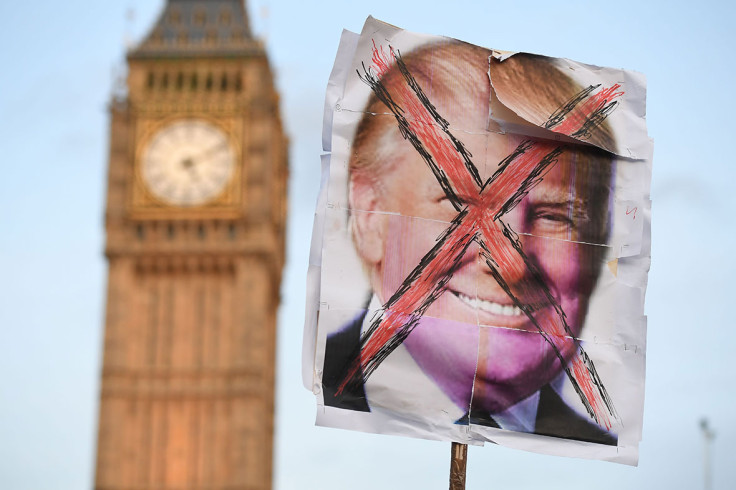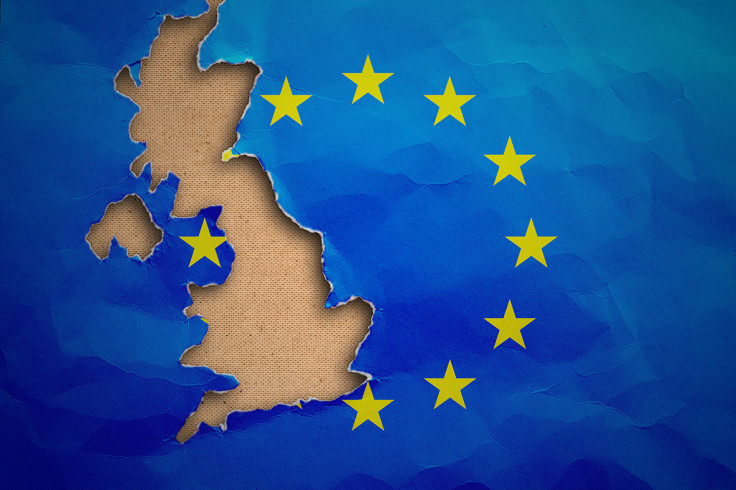The rise of 'political depression' - could Donald Trump and Brexit trigger mental illness?
Politically seismic events have left many of us with a feeling of despair.

After Britain voted to leave the European Union last June, many of us – nearly half the population – felt either dismayed, scared, somewhat ashamed or a mixture of all three. Some of us probably used the term "depressed" to describe feelings of uncertainty about what lay ahead.
In November, the world was rocked again by the election of Donald Trump. Once again, many of us reacted in shock and disbelief at yet another politically seismic event. And some people had a genuine reason to be afraid – less than two months later, the new president introduced a ban on people from many Muslim majority countries and ordered the deportation of millions of immigrants.
The mass disruption caused by both events has led to what can be reasonably described as "collective trauma" – a psychological effect shared by a group of people – or at least stress. But can politics cause depression?
Carol Landau, a professor of psychiatry and medicine at Brown University, says the term "political depression" is mostly used in a casual, descriptive sense, rather than a clinical way. For example, "I feel depressed today" - meaning "I feel sad".
"Then again, certainly external factors, including the political environment, can trigger major depression but I don't think they really cause them," Landau says. "People who suffer from a depressive disorder have periods of normal mood, but also depressive episodes. Similarly, people who suffer from PTSD – one of the major anxiety disorders – can have a specific panic attack or anxiety attack triggered by an actual event.
"It has always been clear that stress can trigger a relapse or an episode of a psychiatric illness."
In a political environment
So how would a political environment do this? Landau says people with psychiatric disorders, particularly depression and anxiety, can be triggered by not just political campaigns but the effect of such campaigns on the wider culture.
"In both the president's campaign in the US and the political turmoil around Brexit in the UK, the situations were quite dramatic and frankly filled with a fair amount of hatred. In my clinical practice, women who have had depression or anxiety in the past have been especially triggered."
In particular, Landau says, people with traumatic episodes in their past – such as sexual abuse – may be affected by certain comments made by Trump during his campaign.
"You can imagine that the election of a person who has been documented bragging about sexual assault, especially in contrast to the potential of the first female president in the US, would provoke intense negative reactions," she says.

At the same time, living in a culture affected by politics can make a person feel unsafe. "Depressed people are among our most vulnerable and many of them are women, refugees, Muslims and people of colour," Landau says. "And it is clear that both in the UK after Brexit and in the US after the election of Donald Trump, incidents of hate crimes have spiked for these groups of people."
One woman Landau sees in her clinic suffered through the Second World War and also the communist takeover of Poland. "Trump's comments attacking the press and the deportation of immigrants has made her feel unsafe and have greatly increased her symptoms of anxiety and depression due to traumatic memories," Landau says.
'Political depression' is demoralisation
So when it comes to the term political depression, it appears to be more of a feeling of being disempowered or a sense of hopelessness. This, of course, is very different to depression as a clinical illness.
"The term 'depressive disorder' includes more than hopelessness and sadness but also the symptoms of sleep and appetite, activity, interest changes as well," Landau says. "Demoralisation is a state, not a disorder."
Still, the feeling of hopelessness is understandable in the current political climate, Landau explains: "In the 2016 US election, and the Brexit campaign, there was a shameless and dramatic use of deception."
In Britain, a good example of this is the Leave campaign adverts that stated the money spent on the EU would go straight to the National Health Service (NHS) – a political ploy immediately discounted by Nigel Farage after the referendum.
"Similarly, Americans are now facing a government that is controlled by Republicans who want to apparently build a wall with Mexico and not have Mexico pay for it, but tell American taxpayers to pay for it," Landau says. "These outrageous and false behaviours can lead to feelings of hopelessness."
Depression is a lot more than a feeling of being upset about a political situation, and it's important to acknowledge this to avoid trivialising mental illness. But it can also be detrimental to criticise over "loose language" when it comes to mental health.
Richard Colwill, media manager at the mental health charity Sane, says: "Clinical depression can be a very serious and traumatising experience, quite unlike feeling upset about a political figure or incident. But we would not wish to criticise someone for loose language if they said they felt 'depressed' by recent events.
"Our main concern is the many people who suffer for months or even years with depression, not only because of a lack of available services but also due to the fear of the reaction they might get by expressing how they feel. Concerned families and friends can also feel constrained about what to say for fear of 'saying the wrong thing'.
"Attempts, however well-meaning, to be too prescriptive about the language we use can have the perverse effect of discouraging people to talk openly about mental health, for fear of being judged harshly or causing offence."
© Copyright IBTimes 2025. All rights reserved.






















